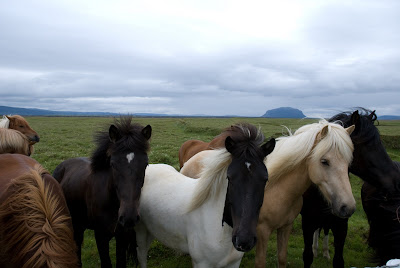A recent article in National Geographic highlights a foundational concept of my understanding of intelligence – “swarm theory”. Swarm theory is a cross-disciplinary field of behavioural studies that has proven that animals behave more intelligently as a collective than they can possibly do as individuals.
The exemplary species for swarm behaviour is the ant. Collectively ants perform extremely complex tasks and behave in an apparently highly intelligent manner – they grow and harvest food like farmers, they engage in complex wars with their neighbors, they attack and kill animals much larger and stronger than themselves, they tend other insects like cattle and use them for food, they take slaves from other ant species, and so on. Yet the ant has a brain not much larger than the head of a pin.
How does the ant do it? There are apparently only a limited number of rules an ant follows in its daily life – but in combination with other ants, the resulting behaviour is highly efficient and highly intelligent.
Similarly, the bee hive has been shown to make intelligent decisions about, for example, which new home to move to, on the basis of a collective appraisal by dozens or hundreds of scout bees. Each scout bee makes its own decision about which location would make the best home. A study cited in the above article from National Geographic has shown that when 15 scout bees reach a consensus on a new home, the entire hive accepts that decision and makes its move. At the same time, there may be five other homes available with only five or ten scout bees at each. They lose the vote, so to speak, and rejoin the hive at their new home.
The remarkable thing the study proved was that the chosen home was always the best choice for the hive, based on criteria identified beforehand by scientists who have studied bees. The implications of a study such as this are far-reaching, for they point at a biological basis for a theory of democracy.
If we take evidence such as this and combine it with work done with human beings, such as the various studies cited in the recent book by James Surowiecki, The Wisdom of Crowds, we gain insights into how human intelligence and human political democracy work. Each of us seeks our own path, and though few of us ever walk a straight line, we arrive collectively at a better solution than we might have working alone.
I’ve argued in an earlier post that the basis for morality is the best long-term interests of humanity. If you wish to act in what could be called a moral fashion, if you wish to act morally, you must act in a manner that you consider will advance the best long-term interests of humanity.
The counter-argument is typically, “who decides?” What you consider to be in the best long-terms interests of humanity might be the opposite of what someone else thinks. So who decides who is right?
The answer lies in the parable of the ant or the bee. By pursuing individually what each ant or bee considers the “right” thing to do, the individual may be wrong but makes an essential contribution to the collective intelligence – and the collective morality – of the whole.
This is also the central argument in favour of diversity. As individuals we are incapable of holding numerous conflicting points of view. It is only collectively, socially, that we can do so. As Surowiecki points out, groups with a diversity of opinions and viewpoints almost invariably make better decisions than homogenous groups or even individual experts.
The exemplary species for swarm behaviour is the ant. Collectively ants perform extremely complex tasks and behave in an apparently highly intelligent manner – they grow and harvest food like farmers, they engage in complex wars with their neighbors, they attack and kill animals much larger and stronger than themselves, they tend other insects like cattle and use them for food, they take slaves from other ant species, and so on. Yet the ant has a brain not much larger than the head of a pin.
How does the ant do it? There are apparently only a limited number of rules an ant follows in its daily life – but in combination with other ants, the resulting behaviour is highly efficient and highly intelligent.
Similarly, the bee hive has been shown to make intelligent decisions about, for example, which new home to move to, on the basis of a collective appraisal by dozens or hundreds of scout bees. Each scout bee makes its own decision about which location would make the best home. A study cited in the above article from National Geographic has shown that when 15 scout bees reach a consensus on a new home, the entire hive accepts that decision and makes its move. At the same time, there may be five other homes available with only five or ten scout bees at each. They lose the vote, so to speak, and rejoin the hive at their new home.
The remarkable thing the study proved was that the chosen home was always the best choice for the hive, based on criteria identified beforehand by scientists who have studied bees. The implications of a study such as this are far-reaching, for they point at a biological basis for a theory of democracy.
If we take evidence such as this and combine it with work done with human beings, such as the various studies cited in the recent book by James Surowiecki, The Wisdom of Crowds, we gain insights into how human intelligence and human political democracy work. Each of us seeks our own path, and though few of us ever walk a straight line, we arrive collectively at a better solution than we might have working alone.
I’ve argued in an earlier post that the basis for morality is the best long-term interests of humanity. If you wish to act in what could be called a moral fashion, if you wish to act morally, you must act in a manner that you consider will advance the best long-term interests of humanity.
The counter-argument is typically, “who decides?” What you consider to be in the best long-terms interests of humanity might be the opposite of what someone else thinks. So who decides who is right?
The answer lies in the parable of the ant or the bee. By pursuing individually what each ant or bee considers the “right” thing to do, the individual may be wrong but makes an essential contribution to the collective intelligence – and the collective morality – of the whole.
This is also the central argument in favour of diversity. As individuals we are incapable of holding numerous conflicting points of view. It is only collectively, socially, that we can do so. As Surowiecki points out, groups with a diversity of opinions and viewpoints almost invariably make better decisions than homogenous groups or even individual experts.



